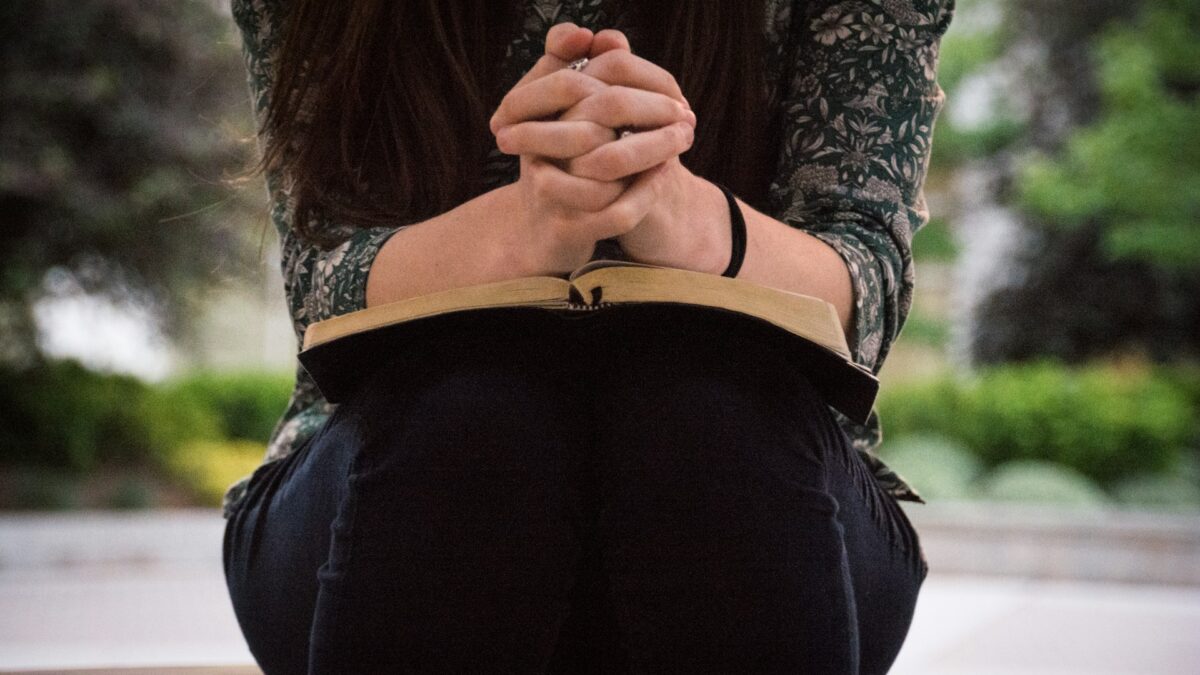
Are you looking for something special and unique to do for your sweetheart this Valentine’s Day? Here’s an idea: take her to church!
Men who don’t go to church or pray with their partners may be missing out on a chance to build stronger relationships. That’s one of the findings of a study released today by the Institute for Family Studies.
The Couple That Prays Together…
In recent years, some sociologists have suggested religion may negatively affect relationships. The usual theory is that religious strictures force couples into non-ideal relationship patterns, possibly pressuring them to marry too soon, or to have children before they’re ready.
This study, which analyzed data from the 2006 National Survey of Religion and Family Life, found churchgoing was mostly a positive for relationships, with one noteworthy exception. Sociologists Brad Wilcox and Nicholas Wolfinger found that couples who go to church and pray together are generally happier, and that churchgoing men tend to be in happy relationships. Interestingly, women who went to church without their boyfriend or husband were less likely to be happy in love.
Going to church with your partner does seem to be a good thing. Churchgoing couples were significantly more likely (11 percent) to report they were “very” or “extremely happy” in their relationships, as compared to non-attending couples. It’s especially good when couples have many friends at church. Unsurprisingly, church can be a good social outlet, and it’s all the better to share that with your spouse.
The news gets even better for couples who pray together regularly. By an eye-opening 17 percentage points, they were far likelier to report satisfaction with their relationships. After your Valentine’s church date, consider capping the night off with a few decades of the Rosary.
Husband Knows Best
It’s not that surprising that couples are happier when they share religious beliefs and devotions, as well as a church community. Relationships do tend to work better when people agree on the big questions, and community support is almost always a plus.
Here’s a less-intuitive find: when only the man attends church, couples are still very happy. Church-going men are about equally likely to be in very happy relationships, regardless of whether the woman comes with them to church.
There might be some interesting intersections here with the findings of previous studies (like this one from Switzerland) showing that children are far more likely to retain a father’s churchgoing practices than a mother’s. Religiosity in men clearly has an impact on marriage and family life, more so than religiosity in women. It’s interesting to speculate on why this might be. I’ll throw out a few theories (not mutually exclusive) for readers to consider.
Women generally have fairly high levels of investment in home and family. It doesn’t usually feel like a choice for us. The baby cries, and we pick it up. We are absorbed. For men, this process seems to be less natural. They are less likely to invest energy in marriage and family, and they are more prone to infidelity. Men take satisfaction in doing the right thing if it is impressed on them that they are doing the right thing.
Our culture, however, sends mixed signals about the relationship of domesticity to manhood. It may be that churchgoing helps men especially by providing a more clear-cut normative model for honorable manhood. That may make it easier for men to discipline destructive impulses and devote themselves instead to home and family.
Especially in light of the Switzerland study, it’s worth considering the unique influence that fathers may have over the family and the tone of the household. Mothers are often said to be the mood-setters for the household (“If momma ain’t happy…”) but it may be that fathers are more influential on the family in terms of broader outlook and perspective. If so, it makes sense that a religiously observant man would be less troubled by his wife’s non-observance than vice versa. He may find it easier to see his faith as the family’s faith even without a high level of cooperation from his wife.
Finally, it could be that men and women diverge somewhat in their motivations for going to church. It might be, for instance, that women are more likely to look to religious communities as social outlets or as a source of support in times of hardship, while churchgoing men more consistently view worship as a moral act, and as a component of a religious commitment.
If that were so, then solo churchgoing might be a sign of moral and psychological health in men, whereas in women, coming to church alone might (at least in many instances) signal distress.
The Good Wife
Churchgoing men tend to have happy relationships whether or not their partners share their faith. Churchgoing women, on the other hand, have excellent reason to look for an equally religious partner. When a woman attends church regularly without her partner, self-reported levels of happiness go down, even in comparison to non-churchgoing couples.
Again, we are left to speculate. The most obvious explanation is that religiously disengaged men are, as a rule, worse lovers. A man who won’t to come to church even to please his wife may be especially likely to neglect his family. That might explain why solo-attending women are less happy in their relationships.
It may also be that women simply care more than men about sharing a religious outlook with their partners. Shared faith may, for women, seem like an important element of personal intimacy. Men may not feel the same need for their partners to affirm and participate in their religious life.
Finally, it’s very possible that women especially worry about the challenges of transmitting faith to their children without the father’s cooperation. The Switzerland study suggests this fear is very reasonable, and that children are far less likely to retain natal faiths their fathers did not share.
This study may interest non-churchgoing men who are looking to improve their marriages. The findings suggest that going to church with your partner might benefit you both. Pastors and parents should also take note, and consider what the implications might be for the religious formation of young men. It’s no secret that churches have had difficulty retaining men in their congregations. That seems to be bad news for romance. What would it take to get men back to church?
As the day of love approaches, perhaps it’s time for couples to trade in their lingerie for mantillas. Let’s move from horniness to holiness. Spread the news! Pious is the new sexy.









